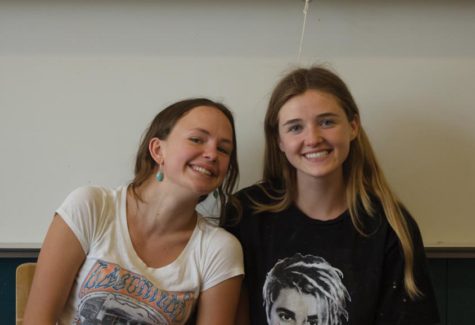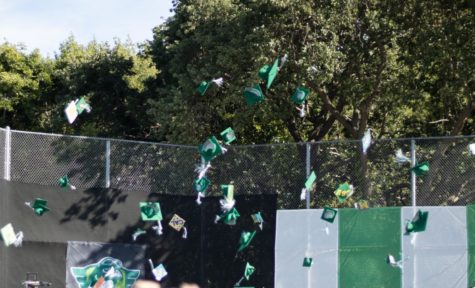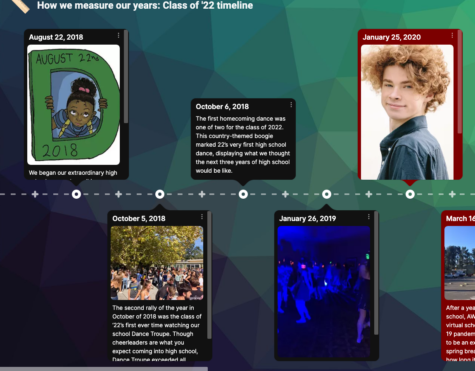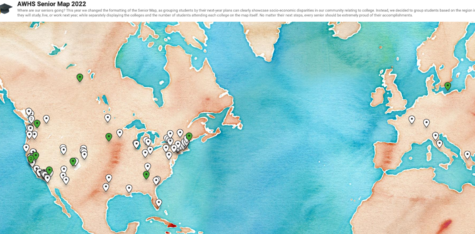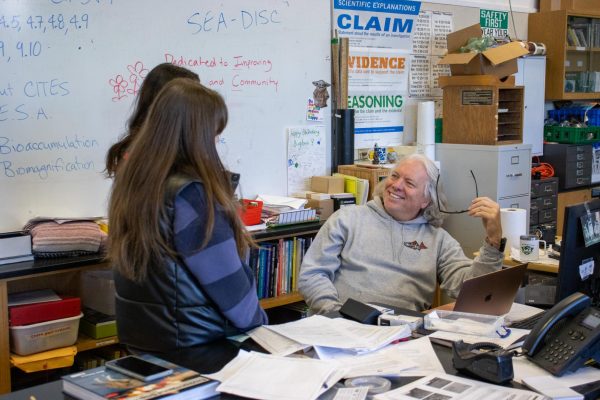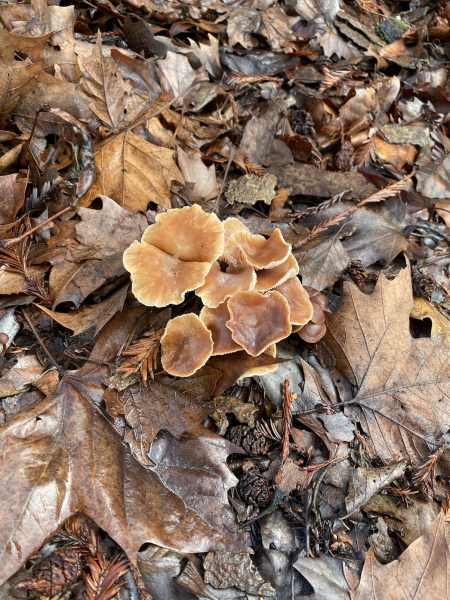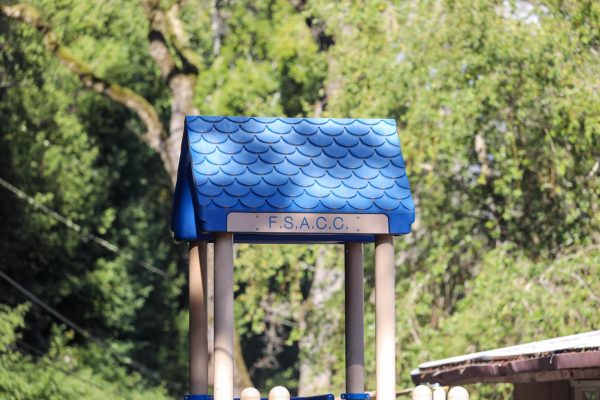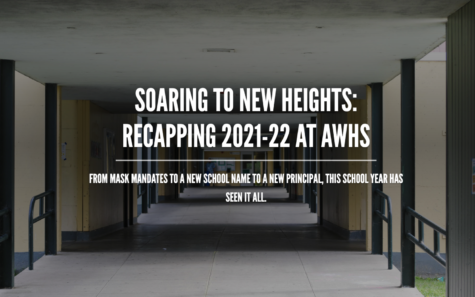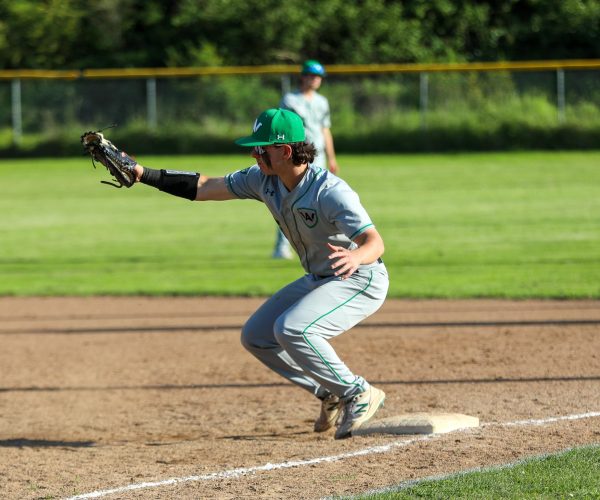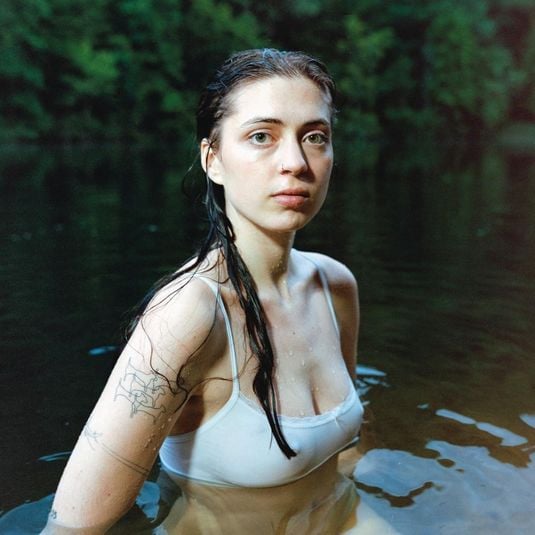Prompted Inspiration: A glimpse into seniors’ admitted college essays
Essay 1: Ben de Andrade, New York University
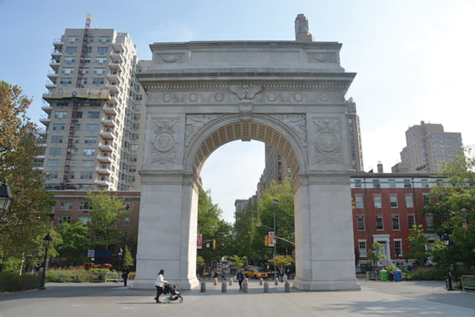
Prompt: Some students have a background, identity, interest, or talent that is so meaningful they believe their application would be incomplete without it. If this sounds like you, then please share your story.
On most weekends, I hike on a local trail close to my house (Dresden Calabrese (DC) comment: Begins with a peaceful anecdote instead of bombarding the reader with information right away). As I walk, I listen to the sound of distant bird calls, chirping as the sun falls over the hills. These weekly hikes give me breathing space, but more importantly, they give me the strength and energy to learn, work, and collaborate in order to create a better future with the environment in it. I have always been fascinated by the ecosystems of the world around me, and the life that exists in it. The more knowledge, experience, and community that I gain through being an activist, researcher, and friend push me to be a better caretaker for the environment.
In my freshman year of high school, I began to work in the school garden (Explains how personal interests are intertwined with extracurricular activities). I weeded, planted, watered, and sowed, helping to create food for the school and the wider community. The longer I spent around plants I had planted myself, ones that I’ve seen grow over my years working in the garden, the more I became connected to nature, the more reason I had to protect it. I saw the beauty of every sprout popping out of the ground after the first rainfall of the year. I noticed the persistence of unidentified animals that always managed to sneak through the fences and eat the leaves off of some kale. I appreciated the interconnectedness of every single living being in an environment, and how each organism is vital for it to work correctly.
My academic learning has pushed me to be more interested in the environment and invested in what happens to it. — Ben de Andrade
In school, I use my time to learn more about the environment. I enrolled in biology and entered a learning community called SEADISC. This helped me learn about the climate and environment in a meaningful way, and even create an experiment testing fertilizer and growing plants at home (I grew snap peas and lemon verbena!). Later in the school year, we did more in-depth projects, diving deep into different environmental problems. In the waste unit, one of the most interesting parts was learning about sustainable waste management practices that can be integrated into an ecosystem. Marshes and wetlands act as a buffer between saltwater and freshwater, giving them natural filtering properties, which can be used to filter out organic matter in the sewage treatment process. Everything I learned connected directly to my experiences in nature. My academic learning has pushed me to be more interested in the environment and invested in what happens to it.
Throughout the pandemic, I also started to work on my climate justice and advocacy skills. To be more active in climate activism, I interned at Greenstitch, a youth climate justice group based in the San Geronimo Community center. I helped grow the group over my junior year of high school, holding presentations about carbon sequestration, ocean acidification, and more! As I continue to work with members of my community, I am constantly surprised by others’ interest in learning more and protecting the earth, driving me to put more time into my work in Greenstitch. A mural we’re working on, where dull grays contrast with vibrant colors, depicts the transition from consumerism to sustainability. Hopefully, it will inspire others as much as it inspires me. After a presentation to a couple of classes in a middle school, many students going into high school asked if they could join Greenstitch, which told me my work was paying off.
In my senior year, I am expanding Greenstitch and finding ways to protect the earth on a more global scale. I continue to work in the garden, weeding and planting. But most of all, I am helping my community in unique ways and also fostering change on a bigger scale. Growing up in a world fueled by global warming and environmental degradation pushes me to take initiative and work to protect what I love (DC Comment: Ends with a personal statement so the reader is able to remember the central theme of the essay).
Essay 2: Rowan Campbell, University of Oregon
 Prompt: Describe a topic, idea, or concept you find so engaging that it makes you lose all track of time. Why does it captivate you? What or who do you turn to when you want to learn more?
Prompt: Describe a topic, idea, or concept you find so engaging that it makes you lose all track of time. Why does it captivate you? What or who do you turn to when you want to learn more?
Putting the pencil on paper is an effortless sensation. Just feeling where it wants to move, where it decides where to go. I can try and control it, but sometimes it has a mind of its own. Sometimes it decides where to move and I just follow. It’s soothing. I think that’s why I get sucked in, lost in time.
The feeling of moving the pencil or pen on a piece of paper is unlike anything I can compare. For me, personally it’s how I put down my thoughts.
— Rowan Campbell
When I draw, the outside world fades as I get sucked into my creation. I can focus on this singular thing with all of my attention. It completely encapsulates me, submerging me into a place that is void of all but one intention. To create (DC comment: Playing with syntax draws readers’ attention to the sentence. This shows personal writing style because it’s continued throughout the essay). Things seem to make sense and doing so slow down, I can center on little details that expand onto the greater creation and that sucks up time, time that I seem to completely forget about. The feeling of moving the pencil or pen on a piece of paper is unlike anything I can compare. For me, personally it’s how I put down my thoughts. The tactile movement, and maneuvering of the tool is how I can explain what I see, whether that be the realism of a human figure, car or other things or the cartoonish virtues of an idea or figure (DC Comment: Uses exceptional detail to describe a simple action).
What excites me the most is the possibilities that await you with drawing. It’s almost limitless, what you get for just thinking is an abundance of possibilities that can be molded into a tangible form (DC Comment: Explains his love for drawing – there are endless possibilities). It is something that other mediums don’t portray so ideally. Photography is stuck in the ‘Real’, whereas sculpture is of more difficult skill. The thing about drawing is how anyone can do it, anybody can pick up a pencil and throw lines down and create a face, or an object.
But when you or I want to become better, more educated or skilled all we have to do is practice (DC Comment: Further explains his love for drawing – you can always keep improving and working). If you talk to any artist who gets the question “how did you get so good?” their answer will always be “Practice.” With drawing you can try again and again and again until your liking, your desires with your work are fulfilled and completed. And sometimes they never are and that’s why you continue. To better your craft. To better my craft. I can always improve and keep trying and that’s why I do it. It frees me without consequence. I am allowed to create something that I can be satisfied with and keep going with nothing to stop me.
When I’m so into my work and put in the effort to create something with such intention it electrifies me when it is finished. Because I see the payoff of my hard work and dedication it makes the whole process worth it. I’m captivated by drawing because of how I feel when I am doing it. It’s a zen that I don’t get from anything else, which frees my mind to allow for unrestricted ideas to be put down. When I draw, I am freed by the sensations of the mind and how it is put to use.
Essay 3: Jane Tananaeva, UC Berkeley
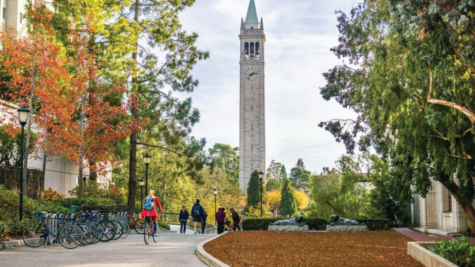 Prompt: Think about an academic subject that inspires you. Describe how you have furthered this interest inside and/or outside of the classroom.
Prompt: Think about an academic subject that inspires you. Describe how you have furthered this interest inside and/or outside of the classroom.
When I was four years old I moved from Moscow, Russia to the San Francisco Bay Area (DC Comment: Begins with a personal anecdote from childhood so the reader can have context for events in the present day). This meant learning a new language and adjusting to life in a foreign country as a small child. As a kindergartener, I disliked the feeling of being different from my American classmates and struggling to understand their language. I wanted to learn English quickly and fit in as much as possible. However, looking back I realize that this experience gave me a unique global perspective that most kids my age did not have and sparked my interest in different cultures and languages that continues to this day.
My love of language and captivation with other cultures has inspired me to delve into the field of international relations.
— Jane Tananaeva
In addition to re-connecting with my Russian background through speaking Russian at home and cooking Russian food using family recipes, I became eager to learn more about cultures and languages other than my own. In middle school, I jumped at the chance to take French classes and have continued to study the language throughout high school (DC Comment: Does not spend too much time talking about the past because she wants the reader to learn more about the recent version of herself and her recent accomplishments). I even challenged myself to do work outside of what was assigned out of genuine interest in the French language and culture. I spent hours practicing verb conjugations on Quizlet, memorizing new vocab words, watching French movies, and baking my own Bûche de Noёl for Christmas.
My love of language and captivation with other cultures has inspired me to delve into the field of international relations. Earlier this year, I took the initiative to reach out to college professors about research opportunities and am currently participating in research on international law with a professor from Boston University’s Frederick S. Pardee School of Global Studies (DC Comment: She dedicates a whole paragraph to explaining an extracurricular that will tremendously separate her from other applicants). My responsibilities involve reading the 1911 issue of the Proceedings of the annual meeting of the American Society for Judicial Settlement of International Disputes and taking notes when I notice instances of racism or skepticism towards the effectiveness of international law when dealing with weaker nations (especially regarding US involvement in countries such as Mexico and Haiti).
At the University of California, I hope to continue fueling my global perspective through courses in foreign languages and international relations, as well as pursuing study abroad opportunities (DC Comment: The essay serves to provide the reader with the reasoning behind choosing a specific major. It builds the reader’s confidence that Jane will succeed in an international relations role).
Your donation will support the student journalists of Archie Williams High School. Your contribution will allow us to purchase equipment and cover our annual website hosting costs. Each donation will receive a magazine subscription for a year (6 copies a year), and become a part of the important work our publication is doing.
$35 -- Subscription to the magazine
$50 -- Silver Sponsorship
$75 -- Gold Sponsorship
$100 -- Platinum Sponsorship
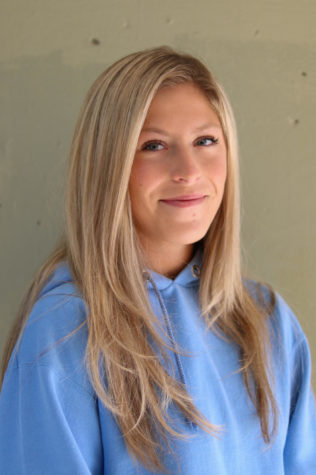
Toasty is a senior, in her second year of journalism. She loves pasta, tanning, and Christmas morning. You can find her ordering a iced vanilla latte at...


